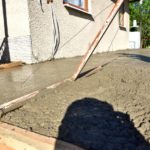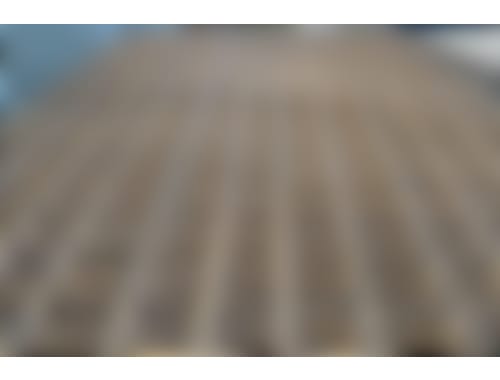We use cookies to make your experience better. To comply with the new e-Privacy directive, we need to ask for your consent to set the cookies. Learn more.
What Size Steel Mesh for Concrete Slab?
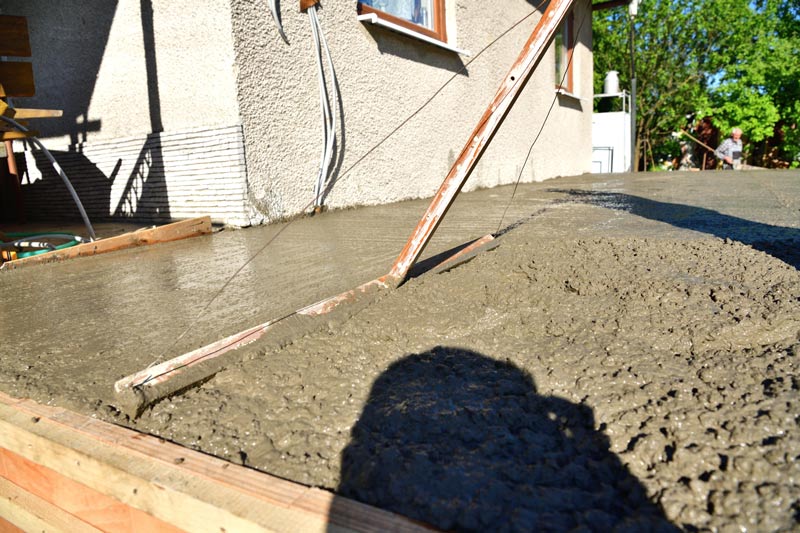
So, you have a concrete slab you want to build, and you’re not sure of the size of steel mesh you need to make sure it remains solid for years to come.
It’s a fair assumption that you’re a seasoned DIYer or home builder, and you’re not prepared to fork out for a civil engineer to tell you what rebar mesh size you need. Fair enough – but we must state here that it’s probably a good idea to get professional advice from a qualified engineer if you’re building anything more than a concrete slab base for your small garden shed, just so that you’re not having to repair or replace in 12 months’ time.
So, what size steel mesh for concrete slab?
What Types of Steel Mesh are there?
Getting down to it, you have a range of mesh sizes available for this.
D49 Wire Mesh
You’ve got your D49 ‘wrapping’ concrete mesh, which is primarily for screed reinforcement due to its lightweight (100mm x 100mm aperture) construction.
A142 Mesh
There’s A142 rebar mesh, which is the lightest gauge ‘A’ spec concrete reinforcement mesh you can get, with 6mm steel rebar and 200mm x 200mm apertures.
(Check prices and order A142 Mesh here)
A193 Mesh
There's the slighter larger diameter A193 reinforcing mesh, which uses 7mm bar steel.
(Check prices and order A193 Mesh here)
A252 & A393 Mesh
And then you’ve got A252 and A393 rebar mesh. Both of these higher spec meshes are for medium usage, in single or double layers (using rebar spacers), for things like driveways and extensions (coupled with rebar cages for footings in some circumstances).
(Check prices and order A252 Mesh here, and order A393 here)
Which Size Steel Mesh Do I Need?
Depending on what you’re building the slab for, you’re going to want to go for different size steel reinforcement mesh. By size, we mean steel rebar diameter, as you can work out the area yourself (we can cut rebar mesh fabric to size for you if required). You may not even need steel reinforcement at all – for very light loadings (such as pathways), properly mixed concrete may well be enough.
What Size Mesh for My Garden Shed?
For small garden sheds with very light loadings on a concrete slab base, the chances are that you probably don’t need concrete reinforcing mesh at all, if you build it properly of course (with sand and hardcore, compacted).
However, if you are expecting to load your shed's floor slab up with heavy machinery, or you’re building a large-size garden shed, then we’d advise A142 welded rebar mesh as a minimum (potentially with other reinforcing steel if walls will be constructed from brick) for these light use applications.
What Size Rebar Mesh for My Garage?
If you’re planning on building a garage base to store vehicles, then likely the loading on the reinforced concrete slab will be substantial. A single car can easily weigh 1,600Kgs, which is 400kg per corner. This loading, plus additional tools, equipment, and other items stored in the construction could easily be loading your concrete ground floor slab with 4,000Kgs including the walls and roof.
Thus, the minimum spec steel reinforcement mesh you will need is A193. However, you may want to add another layer of mesh reinforcement, properly spaced, or use a higher grade such as A252 fabric mesh to ensure you’re covering yourself with higher than expected loading. That said, in most cases 2 layers of A252 is overkill for the average domestic garage.
A252 mesh used in concrete slabs includes 8mm high tensile steel bars, and each sheet will weigh just over 45Kgs. Whereas A193 is constructed using 7mm rebar, and weighs 32Kgs per sheet. Both come in standard mesh sheet sizes of 2.4m x 4.8m (or we can cut them to size if required).
All that said, we highly advise speaking to a civil engineer about this, to ensure that you are covering all building regulations and eventualities (you may need to carry out soil tests, manage drainage, and so on.).
What Size Mesh Do I Need for My Extension/Conservatory/etc.
Before we discuss this, we must reiterate that you should consult with a civil and/or structural engineer before carrying out any work on your construction for the safety and security of the occupants of the building, and the structural reliability of the construction.
Generally speaking, with regards to steel reinforcement, and specifically reinforcement mesh you’ll likely have A252 or A393 spec’d on your construction drawings and schedules for the concrete slab. This will cover most circumstances for dead loading from the structure, as well as the expected live loads the concrete slab will experience (footfall).
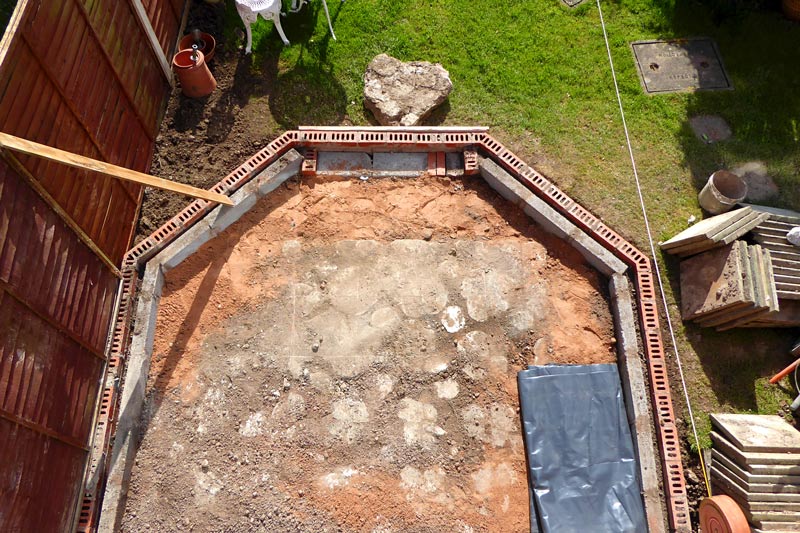
What Size Mesh for Driveways?
A concrete driveway that is expected to experience general use with anything up to large SUV sized vehicles will be fine with a single layer of A193 reinforcement mesh.
If you expect to park larger vehicles, 2-3 vehicles close together, or vehicles laden with excessive weight (such as a loaded Ford Transit van), then it may be prudent to increase the reinforcing mesh to A252.
If the driveway will likely be experiencing high levels of heavy loads then consider increasing this further to 2 layers of A252 reinforcing mesh to cover the expected weight on the concrete slabs. A142 mesh will likely not offer sufficient reinforcing strength for this purpose.
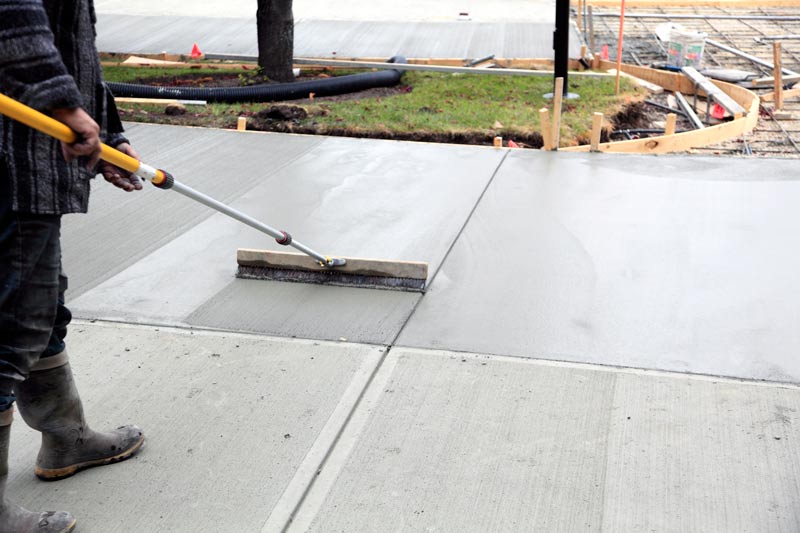
Get All Your Reinforcement Direct from the UK Supplier
At Reinforcement Products Online, we supply varying mesh sizes, including A142, A193, A252, A393, and even B spec structural mesh (B503, B785, B1131). We stock all mesh types in large quantities (standard and merchant size) ready for immediate dispatch UK-wide. We also provide bespoke cutting and bending of rebar, and prefabrication of rebar cages, columns, walls and ground beams. Avoid the middlemen, and order direct from one of the UK’s fastest growing suppliers.
Disclaimer: The advice included in this article is meant to be used in accompaniment with consultation with qualified civil engineers. Use at your own risk. Reinforcement Products Online and its parent company shall not be liable for any issues arising as a result of information contained in the text.

